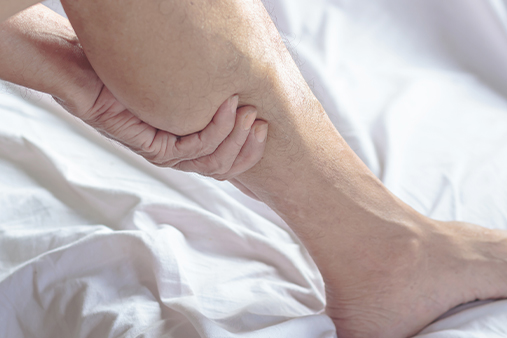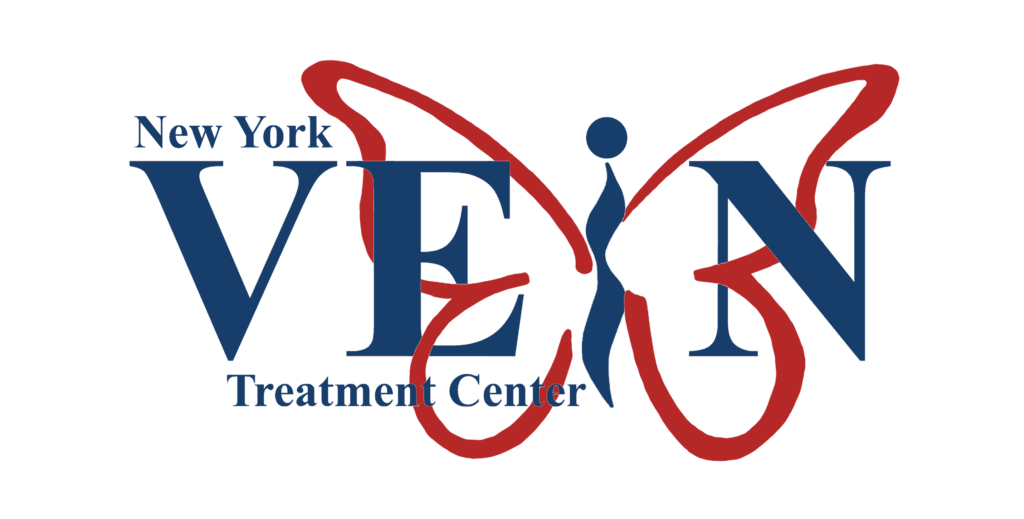Nothing takes your breath away like a leg cramp. Its swiftly tightening grip can even cause the strongest to cry out. If we’re lucky, it goes away with a bit of patience, a massage, or an awkward walkabout.
When leg cramps start increasing in frequency or happen at night, our quality of life becomes affected. We lose sleep, become fatigued, and feel irritable from enduring constant pain.
That’s why our leg cramps specialist at New York Vein Treatment Center wants to discuss how venous insufficiency may be to blame. When dealing with leg cramps caused by vein damage, seeking treatment can help you live a normal life again.
What causes leg cramps?
For some, leg cramps occur when our body experiences imbalances:
- Fatigue
- Dehydration
- Low or high potassium levels
- Low magnesium levels
- Electrolyte imbalances
- Medication side effects
When not experiencing one of these imbalances, your leg cramps may indicate venous insufficiency.
Why do I have leg cramps at night?
As was stated earlier, cramps that wake us up, or keep us up, at night can be the result of dehydration, potassium imbalances, or magnesium deficiency.
Another cause of leg cramps at night is vein disorders. Cramps occur when our veins can’t properly circulate the blood within our legs. When left untreated, this poor circulation leads to varicose vein formation. For some, more severe issues occur, such as blood clotting and venous ulcers.
What is venous insufficiency?
Venous insufficiency occurs when our veins can’t efficiently pump blood back to our hearts. Our veins contain valves that assist in pumping this blood.
When these valves weaken or are damaged, blood begins backing up into the veins. Over time, the blood pools in the veins, causing various vein issues like varicose veins.
While many people associate pain with venous insufficiency, leg cramps also occur when veins become damaged.
What are the symptoms of venous insufficiency?
The venous insufficiency symptoms are similar to those caused by other diseases and disorders. That’s why working with your doctor is crucial to receive an accurate diagnosis.
Symptoms of venous insufficiency may be mild to severe:
- Swelling of legs or ankles
- Tightness in calves
- Itchy or burning sensations
- Discolored (brown) skin around the ankles
- Varicose veins
- Sores or ulcers that resist treatment
- Leg heaviness
- Pain that radiates
- Cramping or muscle spasms
How are leg cramps caused by venous insufficiency treated?
Most venous insufficiency treatments are noninvasive, outpatient treatments.
Endovenous Laser Therapy
This outpatient procedure involves inserting a wire into the damaged vein. Through thermal application, the vein is sealed to prevent further blood accumulation. The blood is then redistributed to healthier veins.
VenaSeal Treatment
Approved by the US Food and Drug Administration in 2015, this innovative procedure involves injecting a medical gel polymer into the damaged vein. The polymer seals the vein to reroute blood flow.
Radiofrequency Ablation
Through the use of high-frequency currents, collagen fibers in the venous wall tighten to close the damaged vein.
Compression Therapy
Compression therapy involves having patients wear medical-grade compression stockings. These stockings support the damaged veins and help them pump blood back to the heart.
This treatment is not a permanent cure for venous insufficiency. It’s typically combined with other therapies in a comprehensive therapeutic plan.
How can I prevent leg cramps caused by venous insufficiency?
Making specific lifestyle changes can significantly reduce the occurrence or worsening of venous insufficiency:
- Losing weight
- Exercising regularly
- Eating healthier
- Elevating your legs
- Quitting smoking
- Wearing compression socks
- Avoiding sitting or standing for long periods
Do certain people have a higher risk of developing venous insufficiency?
The answer is yes. Though venous insufficiency can develop at any time, some people are at greater risk:
- Older patients
- Cancer patients
- Pregnant women
- Overweight people
- Those with a family history of vein disorders
- Those with a history of blood clotting
- Those with a history of leg injuries
Ready to find a leg cramps specialist?
Even if your leg cramps are infrequent or don’t occur at night, it’s still a good idea to talk to a doctor about what’s happening. A knowledgeable doctor can help you identify the cause while addressing underlining issues that may be of concern.
At the New York Vein Treatment Center, our venous insufficiency leg cramp specialist can diagnose the source of your cramping. If we feel it’s vein related, we offer the latest noninvasive, advanced technologies to help you get back on your feet cramp-free.
Contact us today to schedule your leg cramp consultation.

Dr. Lev Mark Khitin, a leading cardiovascular and thoracic surgeon, is the founder of the New York Vein Treatment Center. With almost 20 years of experience and over 20,000 successful vein procedures, he is a renowned expert in the diagnosis and treatment of venous disease. Dr. Khitin’s patient-centered approach and advanced surgical skills have consistently delivered excellent results, making him a prominent figure in the field.


